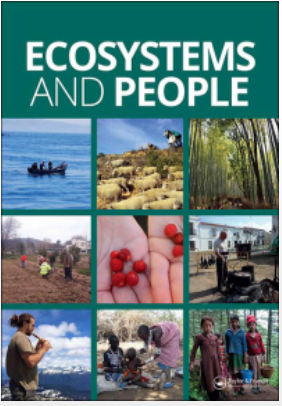改变还是不改变?为保护生物多样性而改变个人行为的感知心理障碍
IF 3.7
Q1 Agricultural and Biological Sciences
引用次数: 0
摘要
摘要即使公众对生物多样性丧失的认识不断提高,仍有必要改善个人的行为,以支持生物多样性保护,例如堆肥或购买对传粉昆虫友好的植物。为什么知道生物多样性丧失风险的个人不改变他们的生活方式来促进生物多样性?本文的主要目的是从经验上识别生物多样性保护行为的心理障碍,特别关注个体对生物多样性丧失心理距离的感知。为此,要求270人填写一份问卷。数据表明,六个主要的心理障碍阻碍了行为的改变,这取决于个人感知的心理距离以及所考虑的行为的具体特征。我们的研究结果是对先前关于应对环境威胁的行为变化研究的重要理论补充,因为它专门调查了导致公民在生物多样性丧失方面无所作为的心理障碍。此外,我们的论文为参与生物多样性保护的决策者、决策机构和协会提供了建议,说明他们在向公民发表讲话和促进他们参与有利于环境的个人和集体行动时可能面临的认知障碍。本文章由计算机程序翻译,如有差异,请以英文原文为准。
To change or not to change? Perceived psychological barriers to individuals’ behavioural changes in favour of biodiversity conservation
ABSTRACT Even if there is an increasing public awareness of biodiversity loss, there still is the need to improve individuals’ behaviours in favour of biodiversity conservation, such as composting or buying pollinator-friendly plants. Why do individuals who know about the risks of biodiversity loss, not change their lifestyles to promote biodiversity? The main aim of this paper is to empirically identify the psychological barriers to biodiversity conservation behaviours, with a specific attention to individuals’ perception of the psychological distance of biodiversity loss. To this purpose, 270 individuals were asked to complete a questionnaire. Data demonstrated that six main psychological barriers prevent behavioural change, depending on individuals’ perceived psychological distance as well as on the specific features of the behaviour considered. Our findings constitute a significant theoretical complement to previous research on behavioural change to respond to environmental threats, as it specifically investigates the psychological barriers resulting in citizens’ inaction with regard to biodiversity loss. Furthermore, our paper offers advice for policy-makers, deciding bodies, and associations involved in biodiversity conservation on the cognitive barriers that they might be confronted to when addressing citizens and promoting their engagement in individual and collective actions in favour of the environment.
求助全文
通过发布文献求助,成功后即可免费获取论文全文。
去求助
来源期刊

Ecosystems and People
Agricultural and Biological Sciences-Ecology, Evolution, Behavior and Systematics
CiteScore
7.80
自引率
11.30%
发文量
40
审稿时长
42 weeks
期刊介绍:
Ecosystems and People is an interdisciplinary journal that addresses how biodiversity and ecosystems underpin human quality of life, and how societal activities and preferences drive changes in ecosystems. Research published in Ecosystems and People addresses human-nature relationships and social-ecological systems in a broad sense. This embraces research on biodiversity, ecosystem services, their contributions to quality of life, implications for equity and justice, and the diverse and rich ways in which people relate to nature.
 求助内容:
求助内容: 应助结果提醒方式:
应助结果提醒方式:


